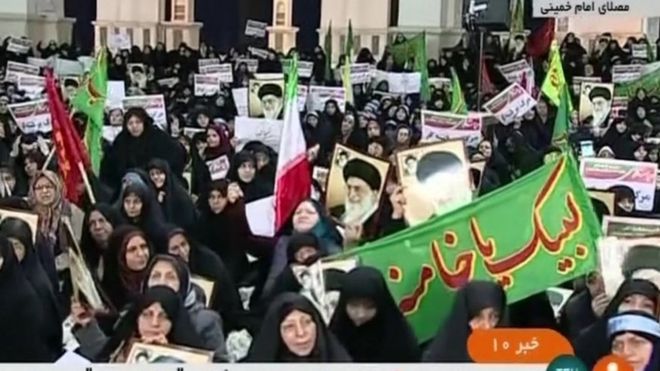 IRINN
IRINN
Thousands of pro-government demonstrators are attending rallies in Iran, after two days of anti-government protests.
State TV showed crowds of black-clad supporters in the capital, Tehran.
Dozens of people have been arrested during days of protests over corruption and living standards, which the vice president suggested were being organised by political opponents.
The US administration warned Iran that "the world was watching" its response.
Saturday's official rallies were organised in advance of the anti-government protests, to mark the eighth anniversary of the suppression of major street protests.
In 2009, masses came out in favour of the then-president, Mahmoud Ahmadinejad, in response to protests by reformists over a disputed election which returned him to power.
Meanwhile, the Iranian authorities are blaming anti-revolutionaries and agents of foreign powers for the protests.
They have promised that the protestors will be dealt with harshly, while admitting there is genuine and widespread discontent.
How did the anti-government demonstrations start?
The protests started in the north-eastern city of Mashhad - the country's second most-populous - on Thursday.
People there took to the streets to express anger at the government over high prices, and vented their fury against President Hassan Rouhani. Fifty-two people were arrested there for chanting "harsh slogans".
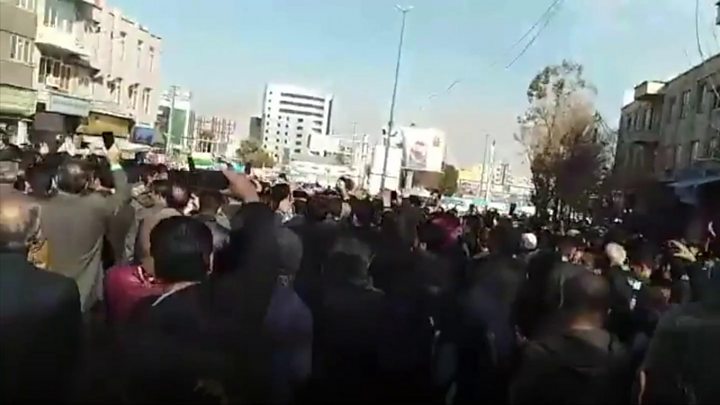
The protests spread to at least half a dozen cities on Friday. In some cities police in riot gear and on motorbikes clashed with demonstrators.
Some protests developed into broader demonstrations against the authorities, calling for the release of political prisoners and an end to police beatings. It was the biggest display of public dissent since huge pro-reform rallies in 2009.
Overall, the numbers said to be taking part range from less than 100 in some places to thousands in others - but demonstrations do not appear to be taking place on a massive scale.
On social media, there are calls for more protests later on Saturday. Some reports suggested these were already taking place.
What is Iran saying about the protests?
First Vice-President Eshaq Jahangiri has suggested that government opponents are behind the protests, according to comments reported by state broadcaster IRIB.
He said: "Some incidents in the country these days are on the pretext of economic problems, but it seems there is something else behind them. They think by doing this they harm the government, but it will be others who ride the wave."
The governor-general of Tehran said that any such gatherings would be firmly dealt with by the police, who are out in force on the main roads.
Officials in Mashhad said the protest was organised by "counter-revolutionary elements", and video online showed police using water cannon.
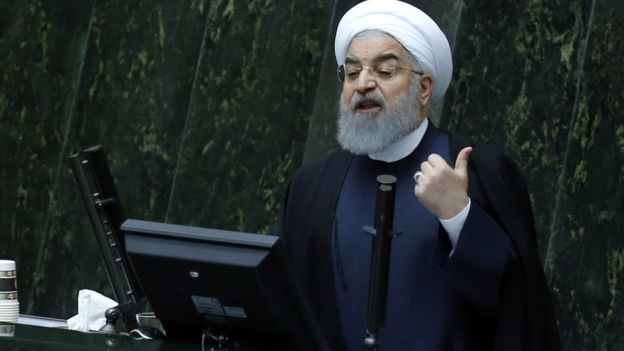 AFP
AFPWhat was the US response?
"The Iranian government should respect their people's rights, including their right to express themselves. The world is watching," White House spokeswoman Sarah Huckabee Sanders said on Twitter.
The same tweet later appeared on President Donald Trump's Twitter account.
The US State Department urged all nations "to publicly support the Iranian people and their demands for basic rights and an end to corruption".
What is behind the unrest?
The protests were initially against economic conditions and corruption but appear to have turned political.
Slogans have been chanted against not just Mr Rouhani but Supreme Leader Ayatollah Ali Khamenei, and clerical rule in general.
Demonstrators were reportedly heard yelling slogans like "The people are begging, the clerics act like God". Protests have even been held in Qom, a holy city home to powerful clerics.
There is also anger at Iran's interventions abroad. In Mashhad, some chanted "not Gaza, not Lebanon, my life for Iran", a reference to what protesters say is the administration's focus on foreign rather than domestic issues.
- Iran 'building permanent military base' in Syria
- Yemen crisis: Who is fighting whom?
- Why Saudi Arabia and Iran are bitter rivals
Other demonstrators chanted "leave Syria, think about us" in videos posted online. Iran is a key provider of military support to the government of Bashar al-Assad in Syria.
It is also accused of providing arms to Houthi rebels fighting a Saudi-led coalition in Yemen, which it denies, and is an ally of Lebanon's powerful Shia movement Hezbollah.
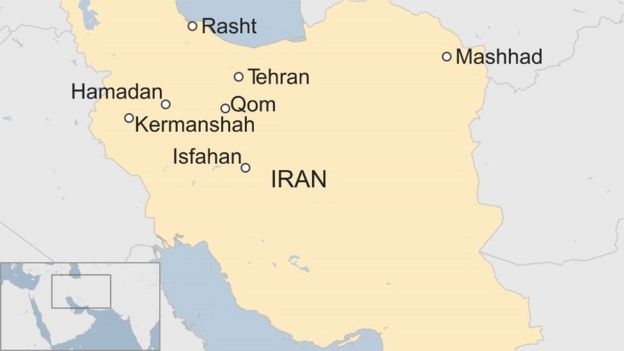
Middle East
Gunman attacks Cairo Christians
- 29 December 2017
- Middle East


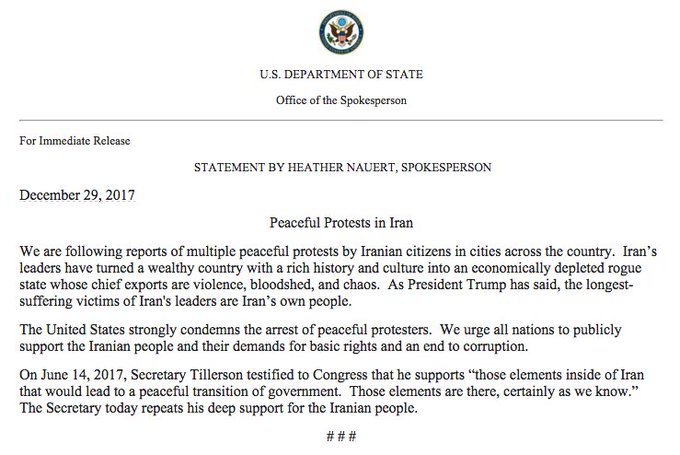
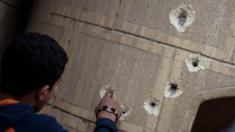
No comments:
Post a Comment